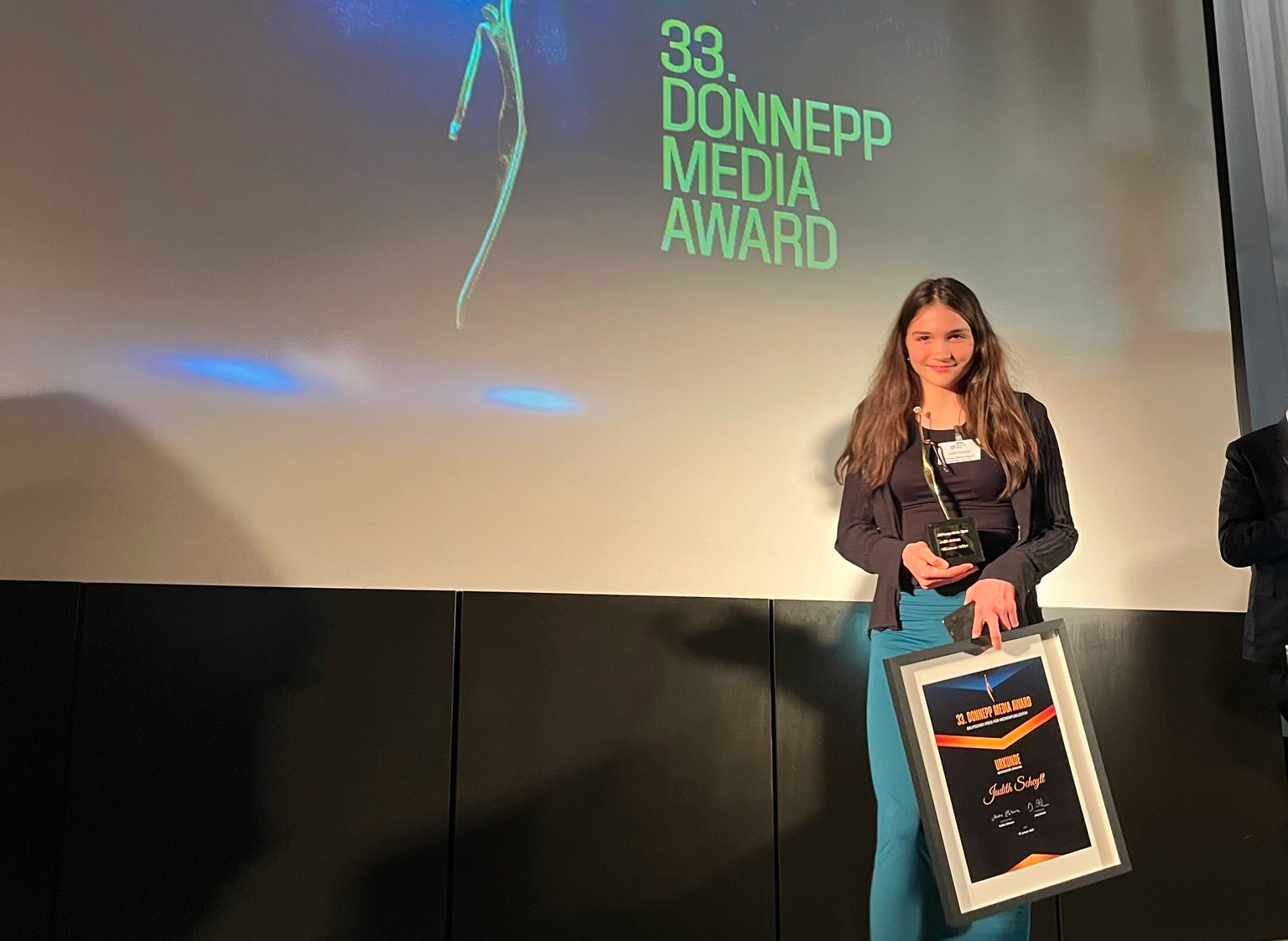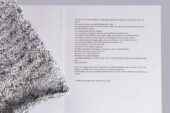The Grimme Support Association revoked a prize awarded to Judith Scheytt for her criticism of German Middle East reporting. Jurors distanced themselves from the decision. The Grimme Institute also admitted mistakes.
In January, the Association of Friends of the Adolf Grimme Prize awarded Judith Scheytt the “Donnepp Media Award” – as a “special honour”. At the time, the then 17-year-old had, according to the statement also circulated by the Grimme Institute, created “a new and contemporary form of media journalism” on Instagram. The jury praised the “knowledge and analytical brilliance” with which Scheytt meticulously deconstructed misinformation on the Gaza war. Her “pointed and challenging analyses” opened up “open spaces” for discussion.
Three months later, the reversal: Scheytt’s mother received the notification that the award was being revoked. Her media criticism was “structurally antisemitic”, according to a 39-page “analysis” that the association’s chairman Jörg Schieb sent to the now 18-year-old following a phone call. His assessment is based on the IHRA definition – which places rigid criticism of Israel under suspicion of antisemitism and is therefore particularly controversial on the Left.
Scheytt’s Instagram channel supports such criticism with studies and sources, as stated in the original award notice. She speaks of genocide, apartheid, war crimes, explains boycott campaigns against companies in occupied territories. She accuses German media of marginalising Palestinian voices – something journalist and author Fabian Goldmann has demonstrated in a study.
The Friends of the Adolf Grimme Prize are an independent support association that backs the Grimme Institute, which in turn awards the renowned Grimme Prize annually. Formally the two are separate. At times, however, the association helps the institute with organisation or funding.
Scheytt has published Schieb’s “analysis” for the revocation of the “Donnepp Media Award”. It concludes that Scheytt’s videos “at first glance contain no explicitly anti-Jewish statements”. Nevertheless, they supposedly “reproduce subtle antisemitic patterns through omissions, double standards and distorted representations”. Many of the arguments, however, are scientifically questionable – and themselves antisemitic, for example by equating Jews with Israel.
The document claims that the genocide allegation before the International Criminal Court ignores Israel’s “precision weapons usage rate”, meaning that “hardly any civilians” are hit. Ninety-three percent of all civilian casualties in the Gaza war were due to “human shield strategies” by Hamas, such as building command centres under hospitals – the claim is based solely on “IDF documents”, but Schieb cites no source. Likewise unsubstantiated is the claim that many killed minors were Hamas fighters, since two-thirds allegedly consist of “16- to 17-year-old combatants”.
Even settlement construction – criticised by the German government itself – Schieb does not consider a violation of international law: he claims it was legitimised by the Oslo Accords. According to him, apartheid cannot exist in Israel due to Arab voting rights – although Arabs are excluded, persecuted and fought against in multiple ways by the government in Tel Aviv.
After Scheytt made the revocation public on Instagram, the media magazine DWDL reported on it. It was speculated that Schieb had used an AI language model for his “analysis” – something he only admitted to in relation to “photos or formatting of the pages”. But other indications also suggest an AI author, such as spelling mistakes like “Schieferkrankenhaus” for the al-Shifa hospital in Gaza, as well as the Denglisch word “Blutlibel”, which refers to an anti-Jewish ritual murder legend.
Schieb, himself a journalist and self-described “AI enthusiast”, did not comment on the possible machine authorship of his “analysis” – saying “nd” was asking “the completely wrong questions”. In a second email he wrote: “Of course I use all modern tools for research, analysis and processing of knowledge, and that certainly includes AI”. The association had Scheytt’s videos “extensively examined legally afterwards”, Schieb told the media service – so also by AI?
Apparently, the revocation was a unilateral action by the board members: the award had been decided by a six-member jury, three of whom were external. Two of them – Nadia Zaboura and Steffen Grimberg – explicitly opposed the revocation of the prize to Scheytt. They were bypassed.
Schieb does not see any mistakes in the procedure. “What matters is that we felt compelled to revoke the prize, as we do not want to award activist, nor at least potentially antisemitic, content”. In the award statement, it sounded quite different: Scheytt was explicitly honoured for “media criticism, activism and democracy building”.
At least the Grimme Institute admits mistakes: “Even though the award-giver and we have repeatedly emphasised that the association and institute act completely independently of each other, this separation has not become clear enough – we need to improve here,” director Çigdem Uzunoglu told “nd”.
The support association for the Grimme Prize, meanwhile, has gone quiet – press enquiries end up on Schieb’s mailbox. “The fact that an institute that claims to stand for media responsibility continues to remain silent about this is, for me, the real scandal and makes me doubt whether a prize from such an association is worth anything at all,” journalist and author Goldmann told “nd”.
On Wednesday, however, the association’s chairman Schieb revealed to the epd news agency that the Cologne Society for Christian-Jewish Cooperation was behind the campaign: the small association, which is also invited to speak on antisemitism in schools, had complained about the school-leaver.
“It is another case in an incredibly long list of the past two years where discourse is being made impossible,” Scheytt told “nd”. Small lobbying groups systematically exert pressure against voices that might counter the narratives of the Israeli government on the Gaza war. That she is taking the offensive is not something the 18-year-old regrets: “Unlike others, I can speak out about it, since I am not dependent on public funding.”
Published in German in ‘nd’.
Image: At the award ceremony in January, everything was still fine for the association’s chairman Jörg Schieb. After a complaint from a Cologne association, he threw Judith Scheytt under the bus.





Leave a Reply